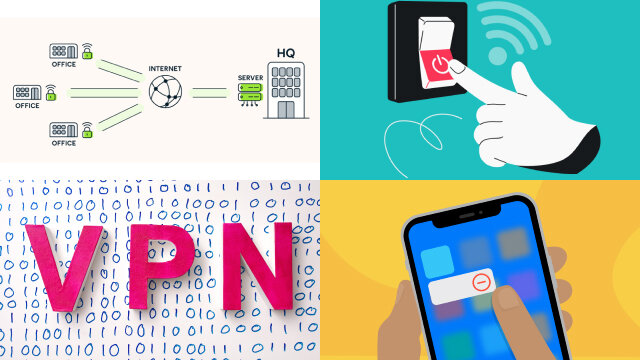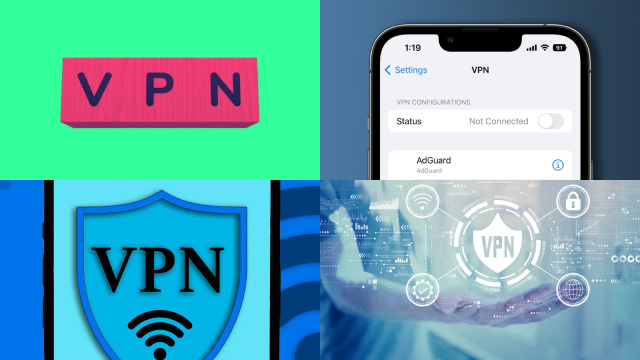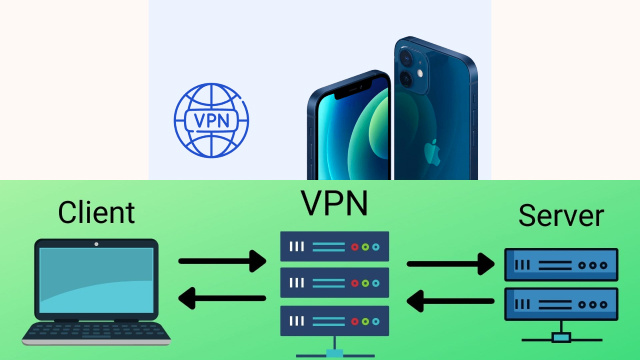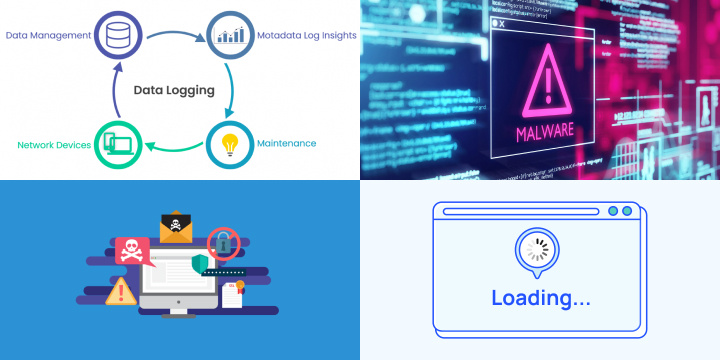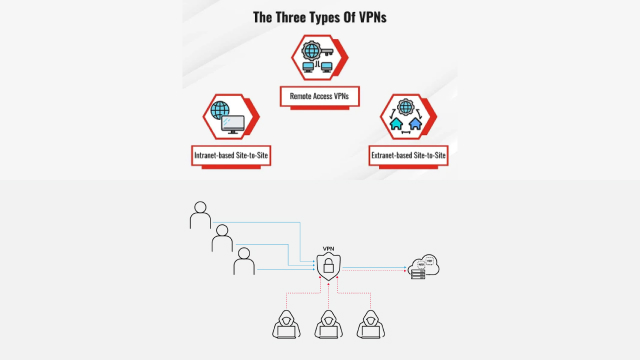Introduction: Why Use a Free VPN?
A Virtual Private Network (VPN) is a tool that helps you access the internet securely and privately. When you connect to a VPN, your internet traffic is encrypted, and your IP address is hidden, making it difficult for anyone to track your online activity. While there are many paid VPN services available, free VPNs are becoming increasingly popular.
Free VPNs are a great option for those who want to enjoy online privacy and security without having to pay for it. They can be used to bypass website restrictions, access region-locked content, and protect your online identity from hackers and data thieves.
However, it’s important to note that not all free VPNs are created equal. Some free VPNs may not offer adequate security or may sell your data to third-party advertisers. Therefore, it’s essential to do your research and choose a reputable free VPN service.
Overall, free VPNs are an excellent option for anyone who wants to protect their online privacy and stay safe while browsing the internet. By using a free VPN, you can enjoy peace of mind knowing that your online activity is secure and private.
What to Look for in a Free VPN?
When choosing a free VPN, it’s essential to consider a few key factors to ensure that you get the best possible protection for your online activity. Here are some things to look for when choosing a free VPN:
- Security: The most important thing to look for in a free VPN is a strong security protocol. Look for a VPN that uses encryption to protect your data and that has no-logs policies to ensure that your online activity is not being tracked or recorded.
- Speed and Performance: Free VPNs can sometimes be slower than paid VPNs due to server limitations. Choose a VPN that offers good speed and performance without compromising on security.
- Server Location: Check if the VPN service offers servers in locations that are important to you, such as the country you reside in or the region you want to access.
- Customer Support: A reliable free VPN should have a responsive customer support team that can assist you with any issues or questions you may have.
- Compatibility: Look for a VPN that is compatible with your device’s operating system and that offers easy-to-use apps or browser extensions for your convenience.
By keeping these factors in mind when choosing a free VPN, you can ensure that you get the best possible protection and performance for your online activity.
The Top 5 Free VPN Services for 2025
In the world of free VPN services, there are a variety of options to choose from, but not all of them offer the same level of protection or performance. Based on our research, here are the top 5 free VPN services for 2023:
- A VPN service that offers strong security protocols, fast connection speeds, and a large number of server locations.
- A VPN service that is easy to use, offers unlimited bandwidth, and has a strict no-logs policy to protect your online activity.
- A VPN service that provides robust encryption and allows you to connect up to 5 devices simultaneously.
- A VPN service that offers excellent performance and reliability, with servers in multiple countries around the world.
- A VPN service that has a user-friendly interface, good connection speeds, and a reliable customer support team.
Remember, when choosing a free VPN service, it’s important to prioritize security and privacy over other features. Always do your research and choose a reputable VPN service that meets your specific needs and requirements.
Comparison of Free VPN Services
When it comes to choosing a free VPN service, it can be challenging to know which one to choose. To help you make an informed decision, here are some key features to compare when comparing free VPN services:
- Security: Look for a VPN that offers strong encryption and has a no-logs policy to ensure that your online activity is not being tracked or recorded.
- Speed and Performance: Consider the connection speeds and performance of each VPN service, as slower speeds can impact your online experience.
- Server Locations: Check if the VPN service has servers in locations that are important to you, such as the country you reside in or the region you want to access.
- Compatibility: Ensure that the VPN service is compatible with your device’s operating system and that it offers easy-to-use apps or browser extensions.
- Customer Support: Look for a VPN service that has a responsive and reliable customer support team.
By comparing these key features, you can narrow down your options and choose the free VPN service that best meets your specific needs and requirements. Remember to prioritize security and privacy over other features when making your decision.
Pros and Cons of Free VPN Services
Free VPN services are a popular option for those who want to access the internet securely and privately without having to pay for it. However, there are both pros and cons to using a free VPN service.
Pros:
- Cost: One of the most significant benefits of using a free VPN service is that it’s free. You don’t have to pay for the service, which makes it an attractive option for those on a budget.
- Privacy: Free VPNs can help protect your online privacy by hiding your IP address and encrypting your internet traffic, making it difficult for anyone to track your online activity.
Cons:
- Security: Not all free VPNs offer strong security protocols, which can put your online activity at risk. Some free VPNs may also sell your data to third-party advertisers, compromising your privacy.
- Speed: Free VPNs can be slower than paid VPNs due to server limitations, which can negatively impact your online experience.
- Limited Features: Free VPN services often have limitations, such as limited server locations or bandwidth restrictions, which can be frustrating for users who need more functionality.
Overall, free VPN services can be a great option for those on a budget who want to protect their online privacy. However, it’s important to do your research and choose a reputable service that offers strong security protocols and reliable performance.
Frequently Asked Questions (FAQs) about Free VPNs
If you’re considering using a free VPN service, you may have some questions about how they work and what you can expect. Here are some frequently asked questions about free VPNs:
- Are free VPNs safe? While some free VPNs offer strong security protocols, others may not be as reliable. It’s important to do your research and choose a reputable service that offers strong encryption and a no-logs policy.
- Can I trust free VPNs? Not all free VPNs are trustworthy, as some may sell your data to third-party advertisers or compromise your online privacy in other ways. Again, it’s crucial to choose a reputable service that has a good track record.
- Are free VPNs as good as paid ones? While free VPNs can offer basic protection and privacy, paid VPNs generally offer more advanced security features and better performance.
- Can I use a free VPN to access geo-restricted content? Some free VPNs can help you bypass geo-restrictions, but they may have limited server locations and slower connection speeds.
- What are the drawbacks of using a free VPN? Free VPNs may have limitations, such as slower connection speeds and limited server locations, as well as potential security risks and data privacy concerns.
Overall, free VPNs can be a useful tool for protecting your online privacy and accessing geo-restricted content, but it’s important to choose a reputable service and understand the limitations and potential risks involved.
The Dangers of Free VPNs: Risks and Pitfalls to Avoid
While free VPNs may seem like an appealing choice for privacy-conscious users on a budget, they often come with significant risks and pitfalls that could compromise your online security and privacy. Here’s an overview of some of the dangers associated with free VPN services:
- Data Logging: Many free VPNs log your online activity, including websites visited, data transmitted, and even IP addresses. This data may be sold to advertisers or shared with third parties, negating the very purpose of using a VPN.
- Limited Security: Free VPNs usually offer weaker encryption and security protocols than their paid counterparts. This can leave your data vulnerable to cyber threats.
- Bandwidth Caps: Most free VPNs impose strict bandwidth limits, slowing down your internet connection and making streaming or downloading data a frustrating experience.
- Ads and Malware: Free VPNs often bombard users with intrusive advertisements. In some cases, these ads may carry malware or other security risks.
- Questionable Privacy Policies: Many free VPNs have vague or misleading privacy policies that allow them to share your data. It’s crucial to thoroughly read and understand these policies.
- Server Locations: Free VPNs typically have a limited number of servers in fewer locations, limiting your access to geo-restricted content.
- Lack of Customer Support: Free VPNs often lack dedicated customer support, making it difficult to resolve issues or seek help.
- Unreliable Performance: Free VPN services may suffer from frequent disconnections, slow speeds, and limited server availability.
To protect your online security and privacy, it’s generally advisable to invest in a reputable, paid VPN service with a transparent privacy policy and a strong commitment to user protection. While free VPNs may seem like a convenient option, the associated risks often outweigh the benefits, leaving you vulnerable to potential security breaches and data exploitation.
Conclusion: Which Free VPN Service is Best for You?
Choosing the right free VPN service can be a challenging task, but it’s essential to consider your specific needs and requirements when making your decision. If you prioritize security and privacy, look for a VPN service that offers strong encryption and a no-logs policy. If you need to access geo-restricted content, check if the VPN service has servers in the region you want to access.
It’s also important to consider the limitations of free VPN services, such as slower connection speeds and limited server locations. If you need more advanced features and better performance, a paid VPN service may be a better option.
Ultimately, the best free VPN service for you will depend on your individual needs and priorities. Do your research, compare features and performance, and choose a reputable service that offers the functionality you require. By doing so, you can enjoy a safer and more private online experience without breaking the bank.
Additional Tips for Secure Browsing with Free VPNs
Using a free VPN service can be a great way to enhance your online security and privacy, but there are some additional steps you can take to ensure your browsing experience is as safe as possible.
- Check for leaks: Use an online tool to check if your VPN is leaking your IP address or other sensitive information.
- Avoid public Wi-Fi: Public Wi-Fi networks are often unsecured, which can put your data at risk even when using a VPN. Whenever possible, use a secure connection or a mobile data network.
- Use two-factor authentication: Two-factor authentication adds an extra layer of security to your online accounts, making it harder for hackers to gain access.
- Keep your software up to date: Keeping your operating system, web browser, and other software up to date can help prevent security vulnerabilities.
- Use a strong password: Use a unique, complex password for each of your online accounts, and consider using a password manager to generate and store your passwords.
By following these additional tips, you can enjoy a safer and more secure browsing experience with your free VPN service.
